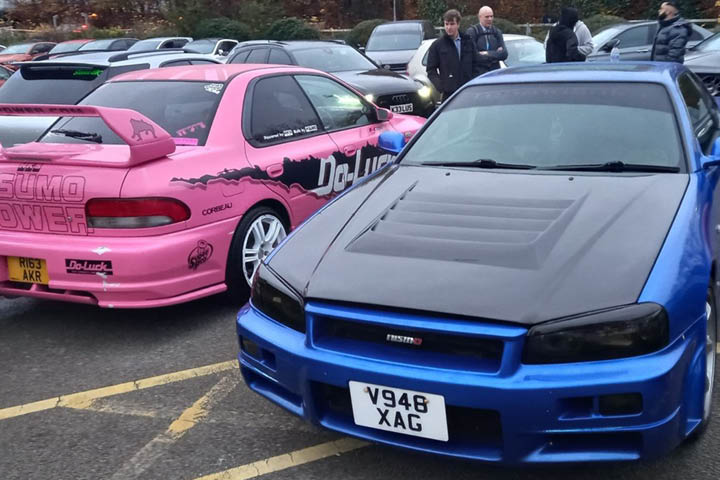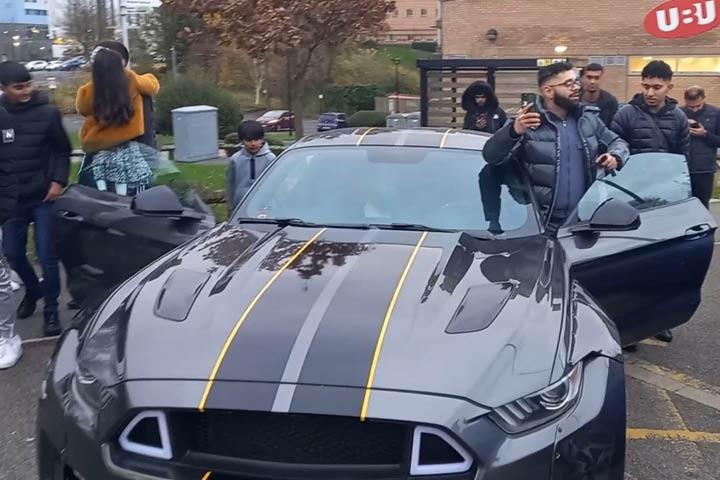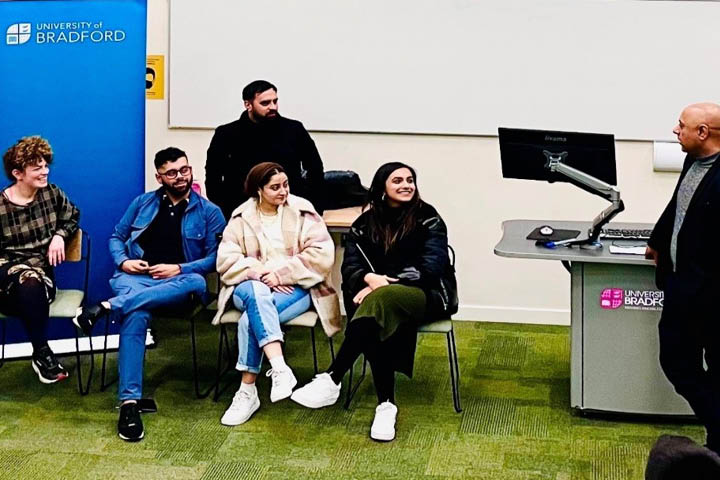Peaceophobia: exploring cars, faith, and culture
Saturday, 20 November 2021, 3.00pm to 6.00pm. About the event.
Blog by Dr Paul Fleetwood

Revving engines, throbbing bass, and the thin, intoxicating stench of petrol fumes: on Saturday, the University of Bradford was invaded by flamboyantly modified cars and the people who love them. The scene was boisterous. Awestruck children, beaming car-modders, and curious academics gathered to marvel at the mobile works of art on display and absorb for a moment the heady atmosphere of an often-overlooked and widely unappreciated subculture.
Maligned and misunderstood, car meetups are more often described in terms of antisocial behaviour than in terms of community. Yet, as Saturday showed, such events are vibrant gatherings, family affairs which allow the curious and the committed to mingle in a shared love of a neglected artform. Each car is a personal passion project, an investment of time, money, and creativity which reflects the identity of the owner and the tastes of an emerging culture.

Discussing the controversy around modified cars, Sociologist Yunis Alam highlighted the role of class and race in circumscribing what does and does not qualify as valid creative expression. Describing encounters he’d had while conducting research into broader car cultures, he noted the suspicion attached to young Asian men in expensive automobiles by those who drive similar cars but, perhaps, feel more entitled to do so.
The role of class and race in attitudes towards car enthusiasts was explored further in the world film premiere of the play Peaceophobia. Here, young British Asian men described their complex relationship with their hobby. From keeping alive the spirit of a beloved family member to providing a constructive release in challenging times, modifying, tuning, and driving cars was revealed to be a far more nuanced activity than the tabloid press allows.

The play brought to the fore the role of faith, identity, culture, and place in the lives of the characters. For them, their cars were sometimes a curse, drawing unwanted attention in times of racial tensions and social upheaval. At other times, the cars were a flag, a badge, with which to display their pride in their own identities.
Peaceophobia, at times uncomfortable viewing, ends on a high note, with a closing call to prayer inviting the audience to join in creating a community of peace. It was a fitting end to a day which had drawn together the many threads of Bradford and highlighted the power of Sociological research to engage meaningfully with a proudly-diverse community.
